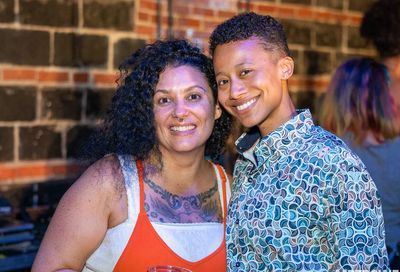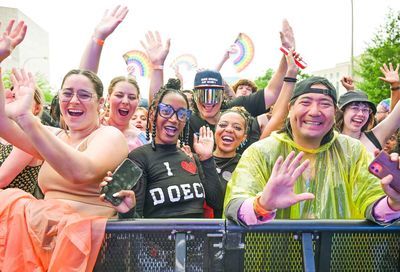Keeping Games Out of Will & Grace-land
Video games don't need to follow an outdated sitcom model to tell LGBT stories when there are better places to draw inspiration
Confession time: I never really watched Will & Grace. There are a number of small reasons for this — including the fact that I wasn’t watching much television when the show was on the air — but the biggest one is really that I felt the show was targeted more at my parents than at me. And that’s fair enough, given that every politician of a certain age who suddenly announces support for marriage equality feels duty-bound to cite the influence of Will & Grace.
So it’s probably not surprising for a show that went off the air eight years ago to remain a touchstone for people who talk about the importance of ”representation” of LGBT people in media. And last week, during a half-day conference on LGBT and gaming issues sponsored by Electronic Arts and the Human Rights Campaign, it only took about five minutes for someone to name-check the groundbreaking ”gay” sitcom and wonder aloud if we need the equivalent video game for today’s media culture.
 I asked the game developers on the panel I moderated if they felt they needed to actually create ”a Will & Grace game, as awful as that sounds when I say it.” I wasn’t really joking, because actually creating a game of Will & Grace would likely go down as one of the most disastrous video game projects in history. Although the prospect of creating a ”Just Jack!” Whack-a-Mole minigame does have a certain appeal.
I asked the game developers on the panel I moderated if they felt they needed to actually create ”a Will & Grace game, as awful as that sounds when I say it.” I wasn’t really joking, because actually creating a game of Will & Grace would likely go down as one of the most disastrous video game projects in history. Although the prospect of creating a ”Just Jack!” Whack-a-Mole minigame does have a certain appeal.
Anyway, leaving aside online bullying and harassment for the moment, one of the main issues for LGBT gamers is the fact that representations of gay and lesbian characters — I can only think of one transgender character ever, which means an even longer road to travel — remain lacking. Sure, some companies, including Electronic Arts and its subsidiaries, have created a number of role-playing games that allow the player to create gay and lesbian characters. Yet even that has its limitations and controversies, as when Star Wars: The Old Republic added same-sex romance but charged players a fee to go to a ”gay planet” that was the only in-game space to get your homo on.
Personally, I don’t have much need to ”see myself” when it comes to games or other arts and media. To be pedantic, I’m a white guy so I don’t suffer any shortage of images that tell me I’m great. But I also play games for stories as often — actually more often — than I do for shooting and blowing stuff up real good. Just like with novels, film and TV, I like experiencing stories that are different from my own, and games can be incredibly powerful and visceral way to do that. And straight people need to experience our stories the same as we experience theirs.
I’m not looking for a game that aims to teach that ”gays are people, too!” It is 2013, after all. After Will & Grace, the shows I most often hear referenced as ”we need this” are Ryan Murphy’s Glee and The New Normal. Fair enough, since they’re candy-colored fantasies that could provide a lovely skin for a Bejeweled add-on pack. But from a gaming perspective, I’d look to that other Murphy show, American Horror Story: Asylum.
That was a story by an openly gay writer who took on the historic medical malpractice visited on homosexuals in recent American history, featured a lesbian lead character, and created a show that wove those themes into a broader story of mental illness, horror and religion — and neither hid nor bragged about the gay content.
That may sound a little too dark if you’re someone who thinks video games begin and end with Super Mario World, but that’s why stories are more important than princesses and magic mushrooms. And those of us who love games know that they can easily be a perfect medium for the experience.
Sean Bugg is the co-publisher of Metro Weekly. He can be reached at sbugg@MetroWeekly.com. Follow him on Twitter @seanbugg.
Support Metro Weekly’s Journalism
These are challenging times for news organizations. And yet it’s crucial we stay active and provide vital resources and information to both our local readers and the world. So won’t you please take a moment and consider supporting Metro Weekly with a membership? For as little as $5 a month, you can help ensure Metro Weekly magazine and MetroWeekly.com remain free, viable resources as we provide the best, most diverse, culturally-resonant LGBTQ coverage in both the D.C. region and around the world. Memberships come with exclusive perks and discounts, your own personal digital delivery of each week’s magazine (and an archive), access to our Member's Lounge when it launches this fall, and exclusive members-only items like Metro Weekly Membership Mugs and Tote Bags! Check out all our membership levels here and please join us today!























